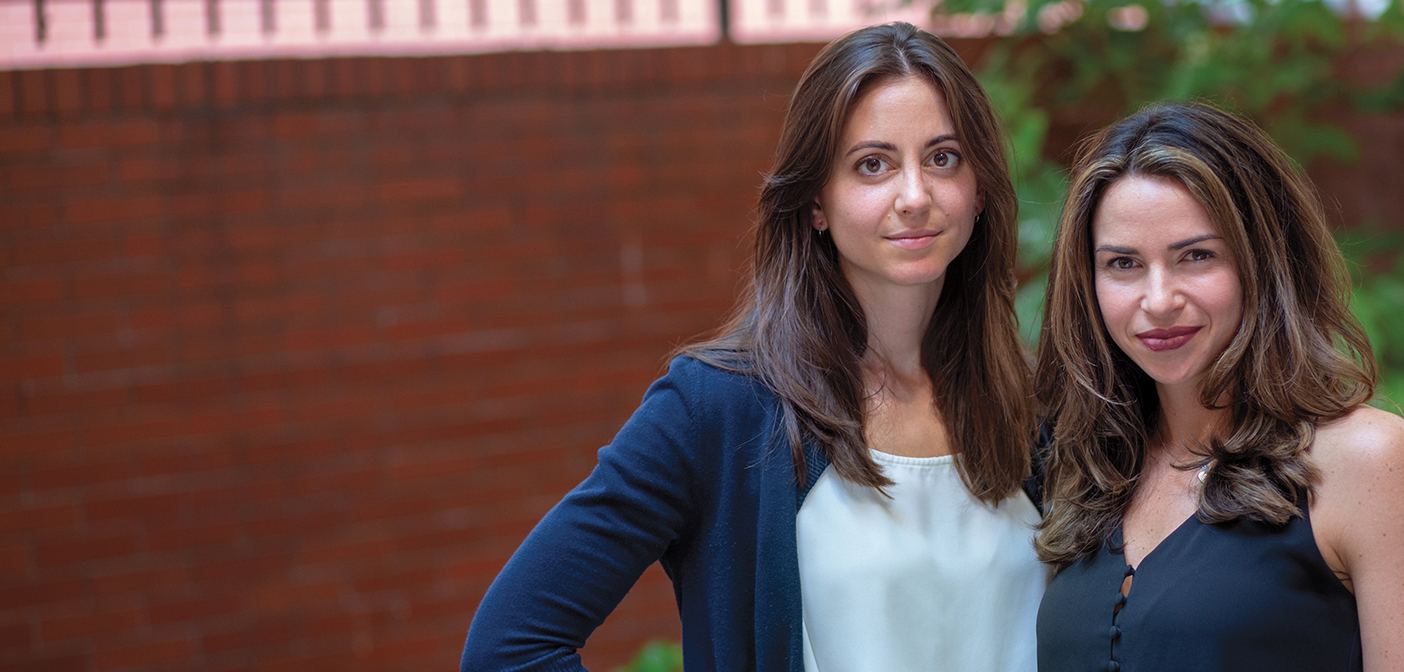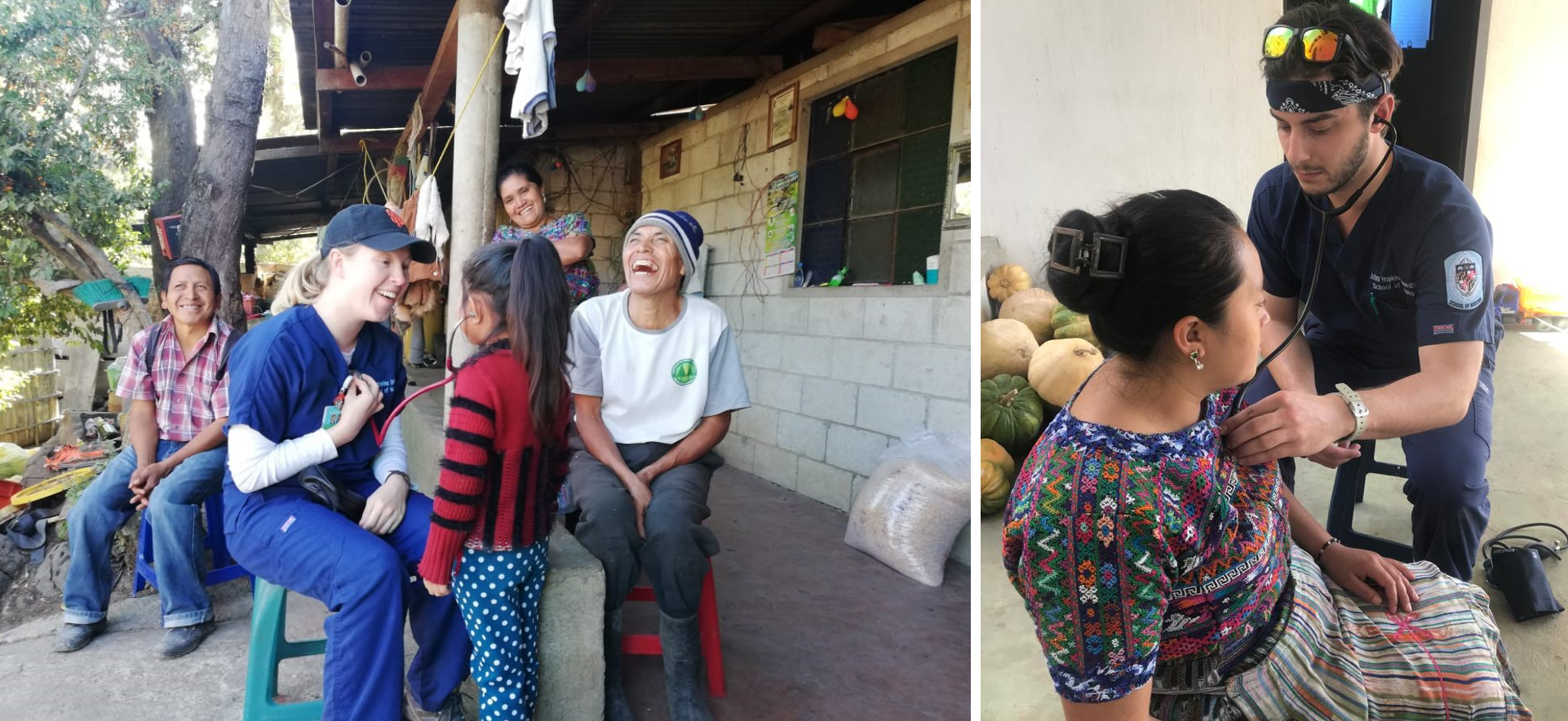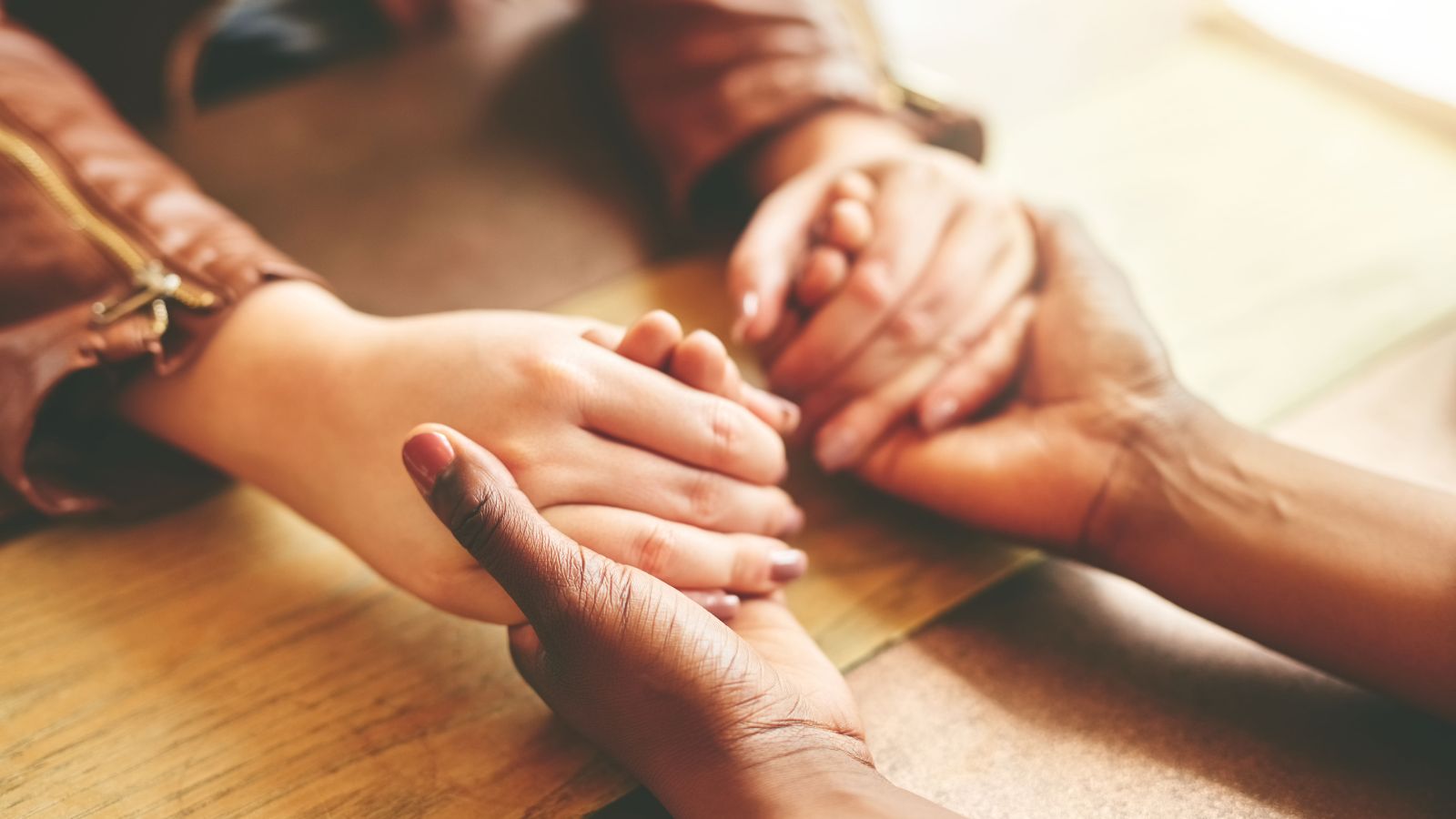Story by Steve St. Angelo | Photography by Chris Hartlove
Master’s Entry students work to open eyes and minds on drug abuse
If you are of the mind that opioid abusers are not worth saving; that giving heroin addicts a safe place to “shoot up” is only encouraging them; that mothers in opioid treatment are unfit; that a habit signals a lack of willpower rather than a disease…
Know that Hillary Woods and Rachael Chrzan are judging you.
Chrzan and Woods, who graduated in August, spent much of their time in the MSN (Entry into Nursing) Program at the Johns Hopkins School of Nursing railing against such stigma. Chrzan, from Portland, OR via Indiana, and Woods, from California, each arrived a couple of years ago to a Baltimore that left them stunned at its health disparities. A Baltimore Harm Reduction Coalition event in Annapolis cemented their desire to act.
“I come from behind the ‘Orange Curtain.’ I was very naïve,” explains Woods, using the insiders’ nickname for her demographically homogenous home of Orange County. Why Baltimore? “It really was the school. I felt like I couldn’t pass up Johns Hopkins.” Then, “I came to Baltimore, looked around and was, like, what is happening here? Why is this [segregation, the opioid crisis] even a thing?”
Studying and working as nurses helped them observe the problem on the ground:
- An addicted patient abusing heroin inside the hospital while awaiting an essential surgery. “You can’t be mad at that person for all the things that led up to this moment in their life. … Punishing them is only punishing ourselves in the long run,” says Woods.
- An expectant mother trying to get “clean” through the Center for Addiction and Pregnancy at Johns Hopkins Bayview Medical Center. “If the mom doesn’t think she’s doing a good job, then she’s probably going to give up, and then that kid doesn’t have a great chance,” Chrzan explains.
- Preventable overdoses, while communities fight supervised “safe spaces” for addicts to inject themselves. “This isn’t the end all-be all … but at least it’s something,” says Woods.
Now alumni, both are off to establish what Chrzan calls “a foundational nursing base” and Woods terms on-the-job “research” before deciding where and how best to ultimately make a difference.
It might be best in the meantime to keep your stigmatizing to yourself.

 Birth Companions Talk Doulas and Maternal Health with Mayor Brandon Scott
Birth Companions Talk Doulas and Maternal Health with Mayor Brandon Scott Global Service Learning: Guatemala
Global Service Learning: Guatemala Guatemala Re-visited: Rainwater Project Shows Value of Service-learning Trips
Guatemala Re-visited: Rainwater Project Shows Value of Service-learning Trips You’re Welcome
You’re Welcome My First Teachers in Nursing School Weren’t Nurses
My First Teachers in Nursing School Weren’t Nurses






